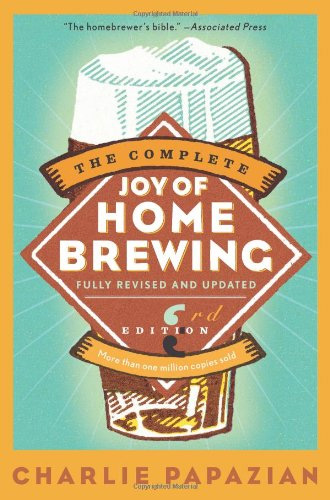
The Complete Joy of Homebrewing
by
Charlie Papazian
Like millions of of homebrewers before me this is the book that got me started on the obsession. The "Complete Joy of Homebrewing" can be read sequentially as one progresses through the hobby, or you can do as I did and read it cover to cover to see how things progress in this hobby. The first part of the book will have you making good beer in a just a few weeks with a small investment in time, equipment and ingredients. From there you can raise your game to the next level by getting beyond pure extract brewing to steeping specialty grains and managing hopping schedules. Finally you can move on up to the all grain version of brewing for the ultimate control of what you produce. Recipes are included for all levels.
If you need more technical detail this one might leave you wanting more. But mastering all the basics presented herein will make your brewing efforts deliciously successful.
How to Brew
by
John Palmer
If you want that extra technical detail after reading Papazian step right up to John Palmer's "How to Brew". Currently in its third edition this book is an excellent read that I keep referring to again and again. While other books tell you what to do, this book shows you how AND explains why you should do those things that are recommended. Like "The Complete Joy of Homebrewing" this book can be read sequentially as you progress through the stages of this brewing obsession. For a free online version of the first edition just click http://www.howtobrew.com/ to go to Palmer's website and read it. Of course, once you've done that you'll probably find yourself buying a hard copy of the updated and expanded third edition.
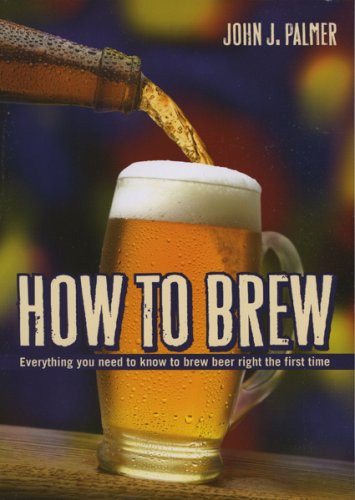
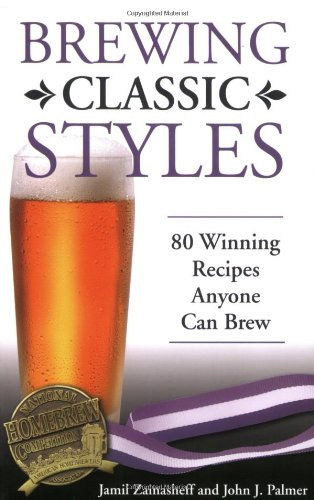
Brewing Classic Styles
by
Jamil Zainasheff & John Palmer
There's a little bit of "how to" in the first few chapters but this book is all about recipes. All of these recipes have been winners in national homebrewing contests. Most all of the standard classic styles of beer are represented. The recipes are classified as beginner, intermediate and advanced and require more care and control at each ascending level. Good brewing practices like those taught in the books above are assumed. If you just feel like spending the next couple of years pumping great beers in a wide variety of styles without trial and error recipe building this book is all you need.
Homebrewing With BeerSmith
by
Brad Smith
As you advance through brewing you'll probably find yourself wishing for a software package that does all the calculations and recipe modifications. I found myself in this position and tried all the free versions of brewing software that were available online. All of them were helpful, some more so than others. As I studied them and compared them to the higher level paid packages I found that everybody seemed to be trying to be "BeerSmith". For less than the cost of one five gallon batch of ingredients I finally scored a copy of the BeerSmith software. I have never looked back. The software, blog, user forum and Brad's amazing collection of podcasts had really helped me along the brew path. So naturally, I had to have the book! Check out all the BeerSmith stuff here.... www.beersmith.com
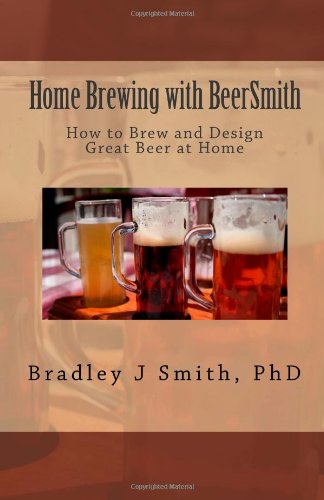
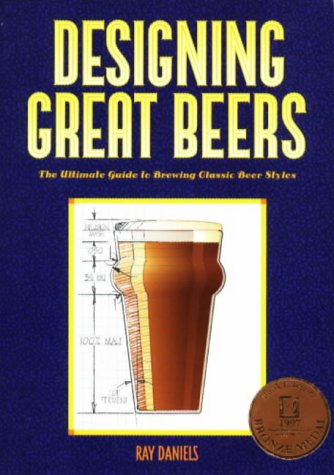
Designing Great Beers
by
Ray Daniels
Did you brew all those recipes from "Brewing Classic Styles" and find yourself thinking, "I'd like to tweak that recipe to make a little more (insert your thoughts here) and little less (insert your thoughts here too)." ? If so, Ray Daniels has just what you need. Here's a detailed look at the history and ingredient bills for many styles of beer. Once again the data is culled from the second round (and beyond) winners from national homebrew competitions. The statistics of which ingredients and how much were used in these highly judged are laid out in many charts so you can really start to be your own brewmaster. Even if you're not trying to truly "design your own" the historical perspective on the various styles is in itself a fascinating read for the beer geek.
Yeast
by
Chris White with Jamil Zainasheff
It has been said that yeast makes the beer. Reading this book gave me an eye-opening awareness of how true this is. A large percentage of homebrew failures come from mistreatment of these living creatures. Since they are living creatures, like us, they need to be healthy, happy, kept at comfortable temperatures and fed well to be at their best. Treat them right and they will treat you right by keeping you well supplied with good brew.
This one does get technical but can probably be useful to any homebrewer looking to step up their game. If you really want to go over the top as a homebrewer or perhaps move into the professional side the last part of the book shows how to set up an entire yeast laboratory.
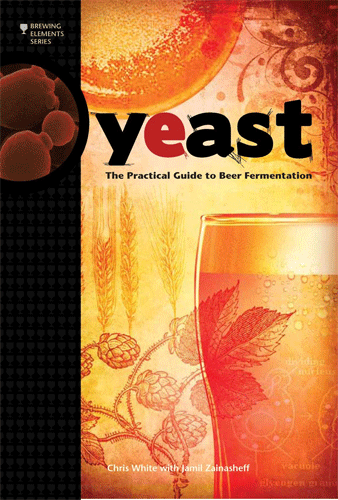
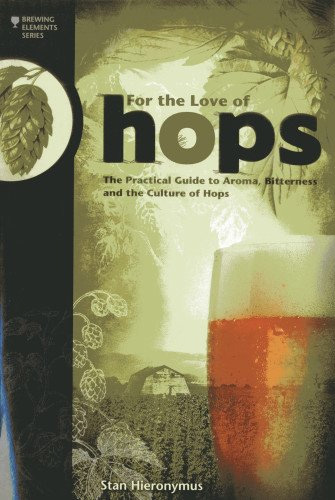
Hops
by
Stan Hieronymous
Ever had a question about the different varieties of hops? Their history? Their chemical composition and how they react with the wort in the boil? How do they age and what flavor changes result? I can't find the XYZ hop for this recipe so what can I substitute reasonably? Yep, this is the "everything-you-ever-wanted-to-know-about-hops" book.
Principles of Brewing Science
by
George Fix
If you are not a hardcore beer techno-geek you can probably skip this one. I continue to study this book over and over. Although it is the thinnest book in my brewing library it is without doubt the most dense. If you have some background in organic and biochemistry you will eat this book up. Since my background in those fields consists of one college course in the 1970's I am proceeding slowly with additional readings in those fields to truly understand the chemistry. If you really want to know, at the deepest level, why brewing "rules" and recommendations are what they are, the answers are here.
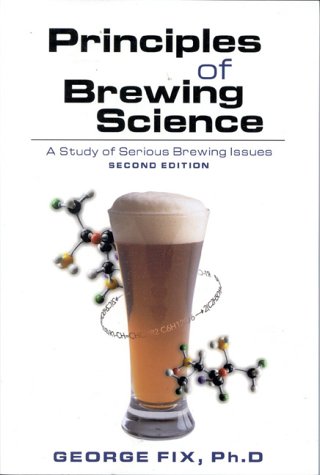
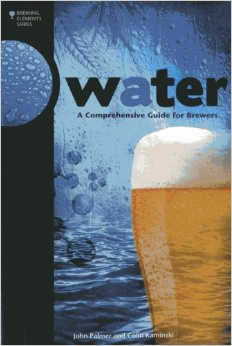
Water
by
John Palmer & Colin Kaminski
Like a child waiting for Santa I had this just released book on pre-order. Now that I have it in hand I see that it was definitely worthy of all the pre-publication publicity. This one will take me a while to absorb. My formal chemistry education is getting close to four decades old so between "Water" and "Principles of Brewing Chemistry" I feel like I'm back in school again - minus the stress about grades.